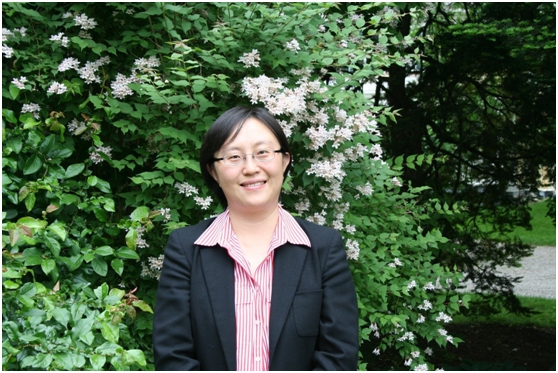
经济与社会研究院SEMINAR第25期
题目:The Role of Bullet Trains in Promoting Intellectual Spillovers in Urban China
报告人:郑思齐
时间:2016年12月16日13:30-15:00
地点:暨南大学中惠楼106B
主办单位:暨南大学经济与社会研究院
主讲人简介
郑思齐,博士,教授。清华大学恒隆房地产研究中心主任,清华大学建设管理系副主任。国家自然科学基金杰出青年基金获得者(2016),优秀青年基金获得者(2013),国家万人计划青年拔尖人才(2015),入选教育部长江学者青年项目(2016),教育部新世纪人才支持计划(2012),以及Homer Hoyt Institute的Fellow(2016年)。主要研究方向为城市经济学。相关研究成果发表在美国科学院院刊(PNAS), Journal of Economic Literature, Journal of Economic Perspectives, Journal of Economic Geography, European Economic Review, Journal of Urban Economics, Regional Science and Urban Economics, Journal of Regional Science, Real Estate Economics, Journal of Real Estate Finance and Economics,《经济研究》、《管理世界》和《经济学(季刊)》等期刊上,此外还发表了100余篇中文学术论文。郑思齐教授与Matthew Kahn教授的“Blue Skies Over Beijing: Economic Growth and the Environment in Urban China”于2016年在普林斯顿大学出版社出版,Nature杂志刊登了短评。她担任Journal of Economic Surveys和《不动产研究》的副主编,Journal of Housing Economics(住房经济学)和International Real Estate Review(世界房地产评论)的编委,世界华人不动产学会(GCREC)副秘书长,亚洲房地产学会(AsRES)理事,中国城市经济学会学科建设委员会副主任,中国城市百人论坛成员。
Abstract:
In non-democracies the capital city in a nation has "too much power” (Ades and Glaeser, 1995). This has Implications for the misallocation of resources and efficiency wedges. China’s Communist Party chose to build great universities in the superstar cities, and best scholars are in those universities. In a world where transportation costs are high within cities and across cities, relatively few people can access the brilliant scholars and the key pieces of laboratory capital that are housed at these universities. Transportation costs make China's universities “LOCAL public goods". Such an "intellectual monopoly power" can distort the allocation of resources and create inequalities for those scholars who cannot work and live in such cities, and this process re-enforces itself. Declining transportation costs change China’s superstar universities to “REGIONAL public goods”. As 2nd-tier universities are connected to the Superstar cities, the researchers at these 2nd-tier universities can collaborate with the stars, learn from them and use their labs and equipment. Our paper focuses on the role of bullet trains in this process. The rise of an integrated system of cities generates such intellectual spillovers and thus reduces inequality across cities. This means that more human capital can be produced and this has implications for China's overall economic growth –Lower transportation costs make China smarter!

郑思齐教授